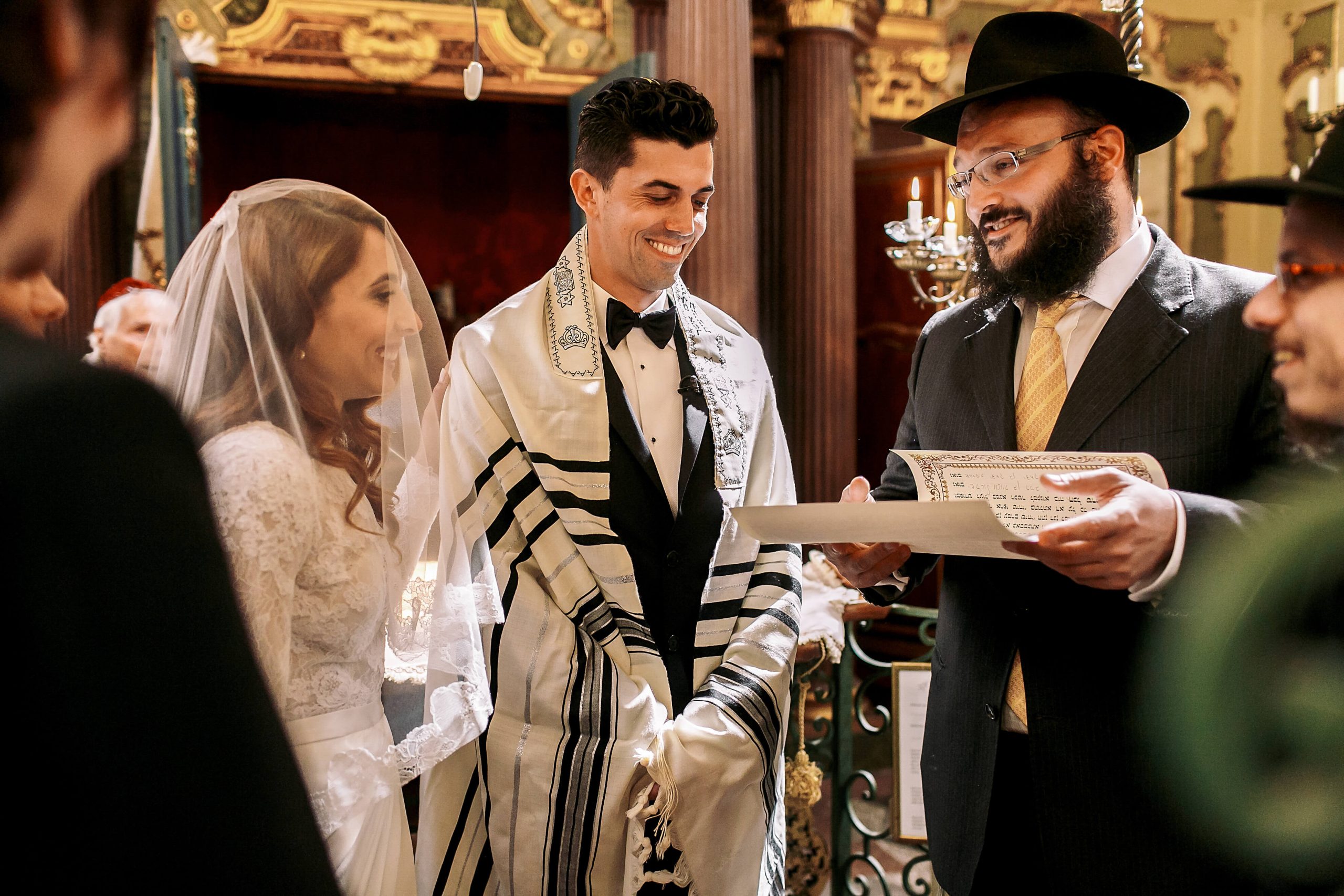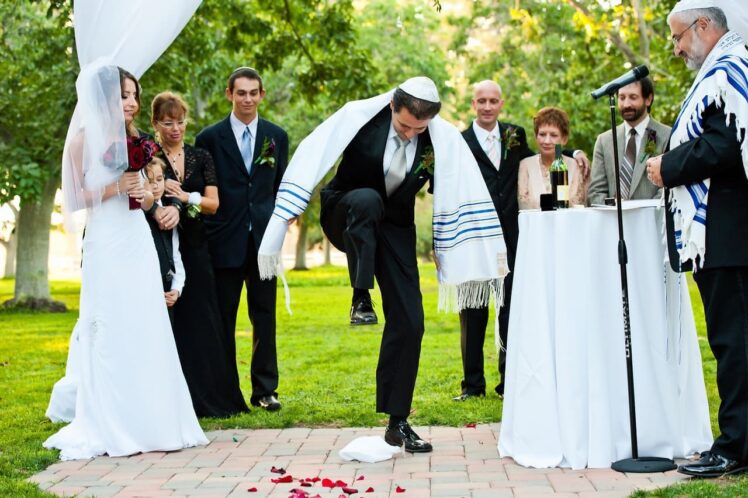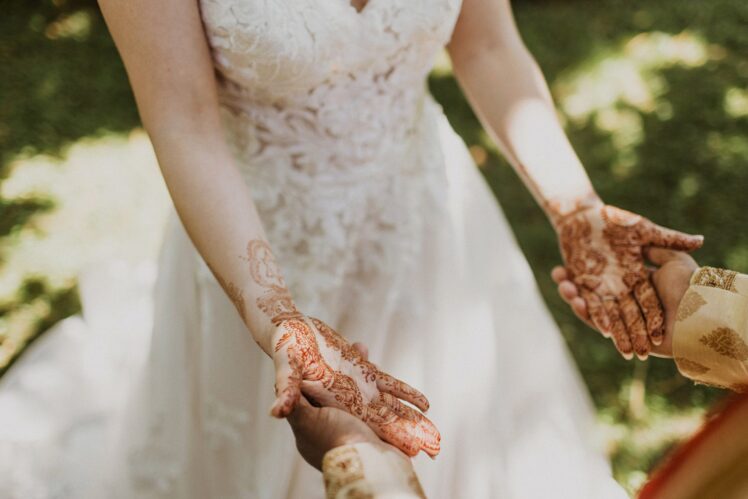Jewish Wedding Ceremony: A Step by Step Guide

Weddings hold a special place as meaningful occasions, symbolizing the commitment between two individuals. The deeply personal nature of weddings is evident in the significant time people invest in planning these memorable celebrations, ensuring every detail reflects their unique love story.
Weddings can be completely personalized; however, including tradition and aspects of cultural heritage is also important. Weddings differ from culture to culture, each one having its own distinctive characteristics that set them apart.
In this piece, we’ll explore the enchanting realm of Jewish weddings, uncovering their essential elements. Additionally, we’ll offer you a detailed, step-by-step guide to help you craft the ideal Jewish wedding ceremony.
Steps To The Perfect Jewish Wedding

Source: julianribinikweddings.com
Jewish weddings are complex and include a wide number of elements and traditions. It’s important to note that not all Jewish weddings are the same, as certain traditions are different in some Jewish communities. Nonetheless, the majority of traditional elements are the same for most. The following list showcases a step-by-step guide to achieving the perfect Jewish wedding ceremony:
1. Setting the date: To kick off your wedding plans, pick a date that works for everyone involved. A helpful suggestion is to choose a date based on the Jewish calendar or any other date with a special meaning.
2. Budget: Considering the vast amount of factors that must be considered when putting together a wedding, setting aside a specific budget at the beginning is optimal.
3. Location: Once you’ve settled on a date and established a budget for the wedding, the next move is to discover the perfect venue for your ceremony. Explore different venues and consider the option of holding the wedding in a synagogue.
4. The official: This is a very important part of any Jewish wedding. Generally, having a Rabbi officiate the religious aspects of your wedding is the best choice you can make. In addition, you must specify any requests that you have ahead of time to remove any potential errors or misunderstandings.

Source: angelsmusic.net
5. Planning the Ceremony: This is tiresome but also one of the most fun parts of the process as you get to be creative and soak in the fact that you’re getting married. The first step is to choose a ketubah. If you don’t want to waste time, consider looking into ready made ketubah designs. Afterward, you must choose a chuppah as well as a kiddush cup. Don’t forget about the tradition of breaking the glass. Lastly, you can explore rings for you and your loved one.
6. Counseling: Consider arranging a premarital counseling session with a Rabbi. This session serves as a valuable opportunity for the engaged couple, offering support and a platform to discuss the core values and significance of a Jewish marriage.
7. The guests: This is one of the most important parts to any wedding and one of the most daunting ones as well. After all, you want to make sure that you don’t leave anyone out but still remain within the budget you set. The first step is making a list, after which you can send the invitations in due time.
8. Vendors: You must find a catering service provider and discuss the menu options they offer. After doing so, you should also look into hiring a professional photographer as well as someone who will be responsible for the music during the wedding.
9. Reception: The next step is to set up a kosher menu together with a caterer. Afterward, you can look into the decorations you want to include in your wedding and also plan the sequence of events for the wedding.

Source: shellypatephotography.com
10. Wedding costumes: The bride and groom should coordinate their wedding clothing and ensure that elements pertaining to Jewish traditions are adequately incorporated. The bridesmaids and groomsmen must also have their attire set up for them.
11. Wedding day: It’s important that the wedding timeline is followed precisely. However, even if some things do not go exactly as planned, it’s important to stay calm as this is an important day that should be enjoyed in a good mood.
12. After the wedding: The guests should receive notes thanking them for attending the wedding. If the couple decides so, they can initiate the name-changing process.
Key Takeaways
In summary, creating a perfect Jewish wedding is a blend of tradition, love, and careful planning. There are a lot of things you need to watch out for to elevate your big day to be unforgettable.
This step-by-step guide ensures a meaningful ceremony, from setting a date aligned with the Jewish calendar to coordinating the attire and expressing post-wedding gratitude. Key steps involve choosing a rabbi, planning the ceremony details, and organizing the reception, all contributing to a joyous celebration.
While the timeline is crucial, embracing unforeseen moments with calmness ensures a day filled with happiness. This comprehensive approach, balancing tradition and personal touch, ensures that the wedding reflects the couple’s unique journey and creates lasting memories for all involved.





